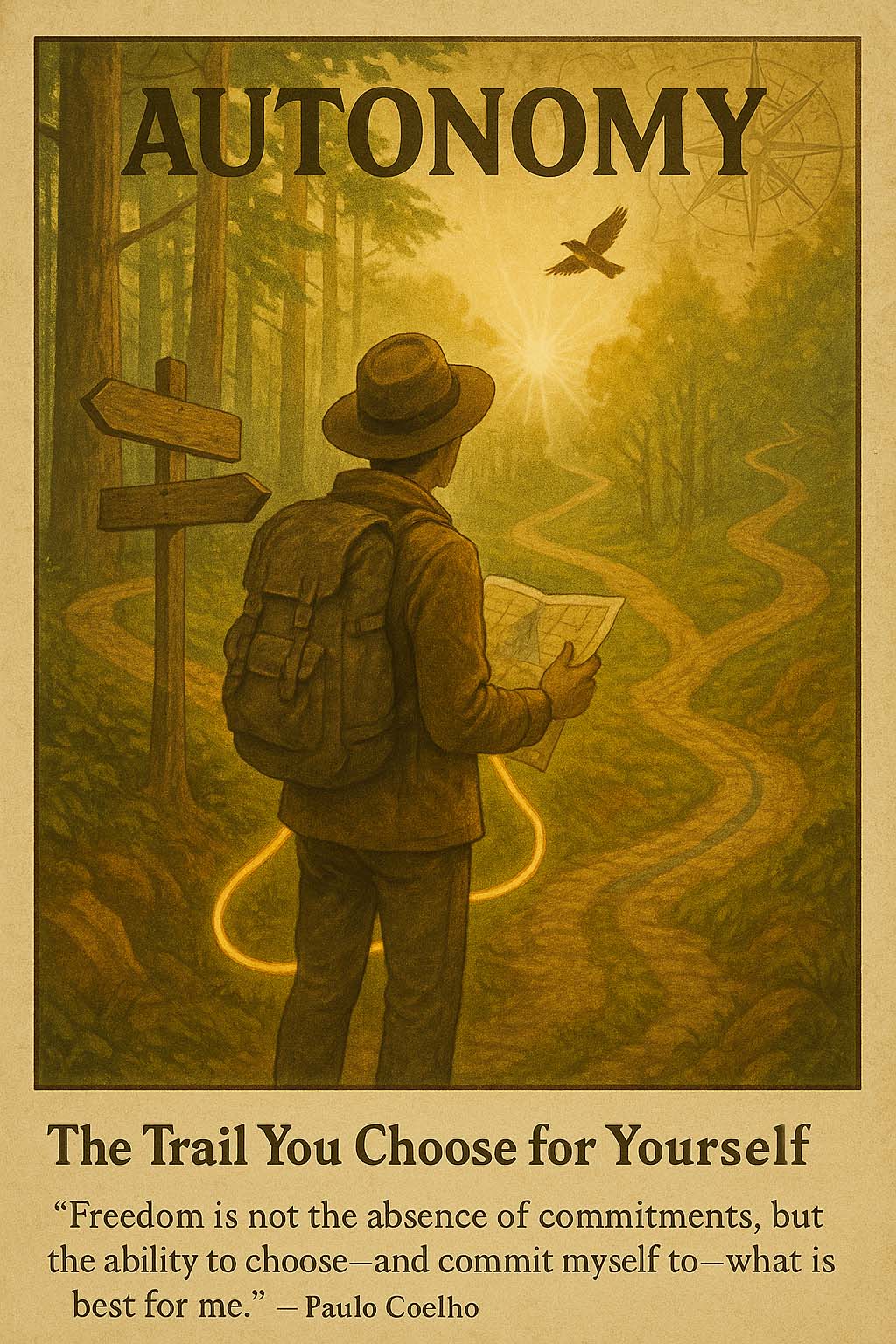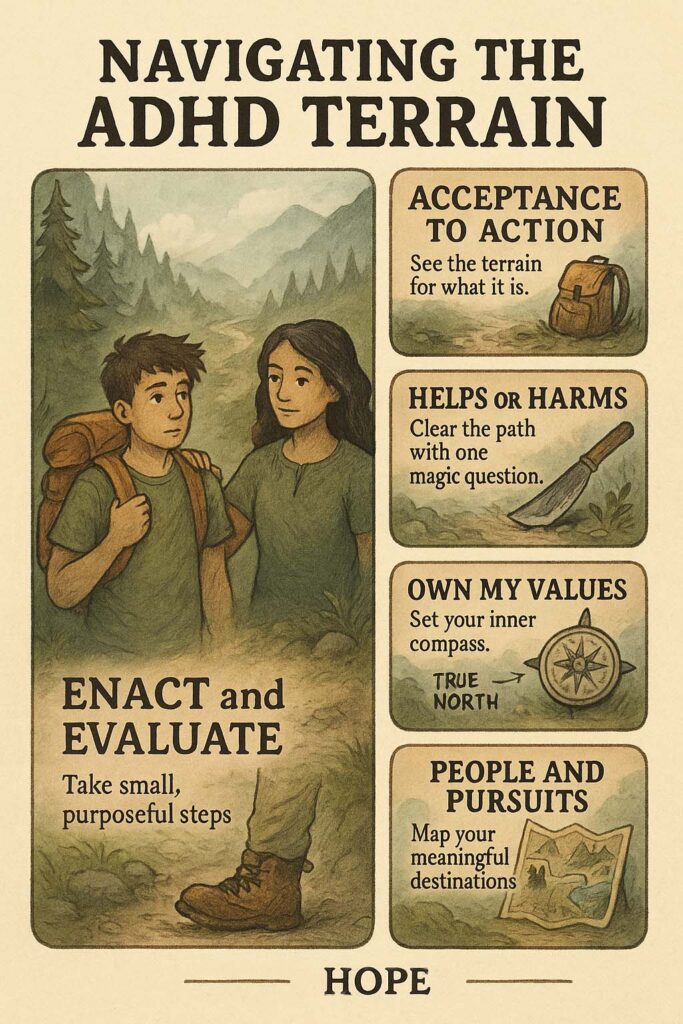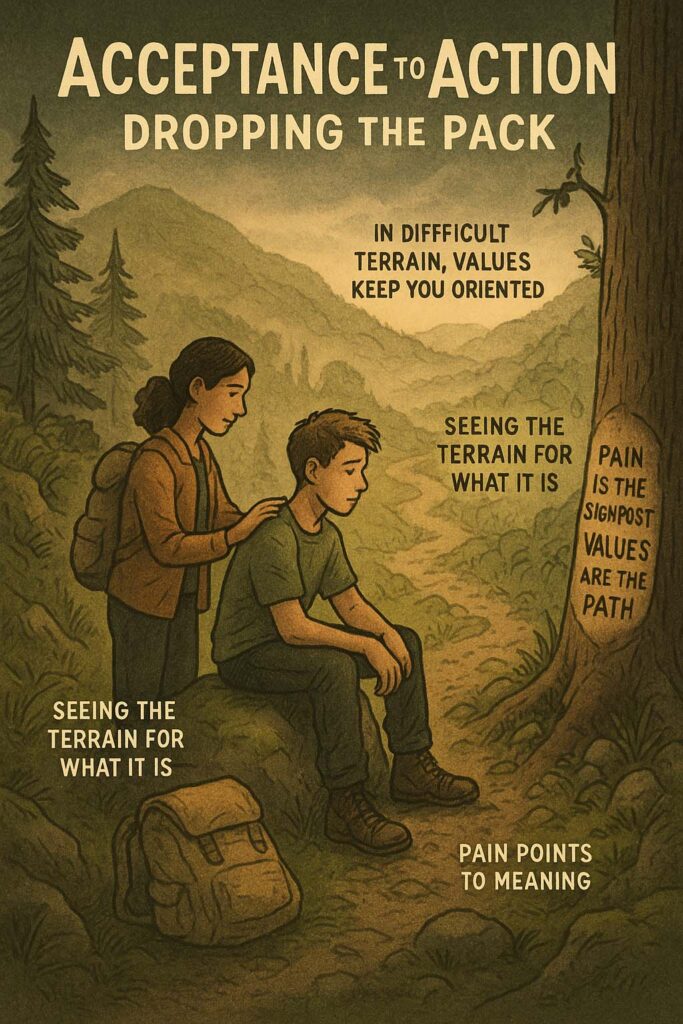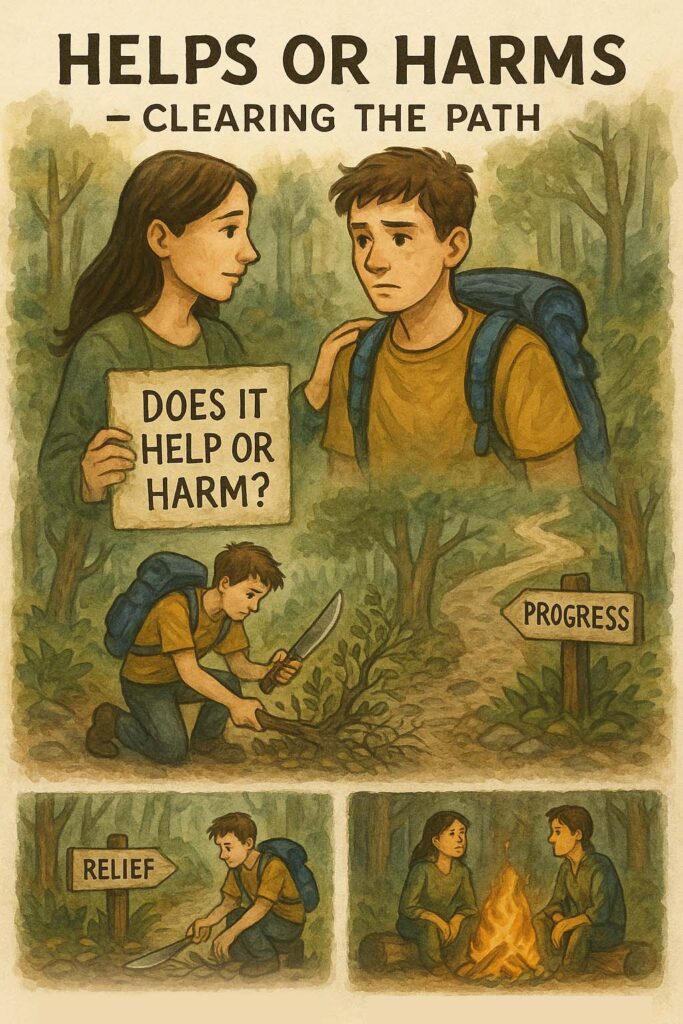
🕹️ AUTONOMY
“Freedom is not the absence of commitments, but the ability to choose—and commit myself to—what is best for me.” – Paulo Coelho
Autonomy is the choice to take your own trail, even if others don’t understand the route. For people with ADHD, life can feel like a constant chorus of directions from others—do it this way, hurry up, slow down, be more consistent, be less intense. Autonomy is the moment you step off that noisy main road and say: I choose what works for me.
This value is a reclamation of dignity. In a world that often pathologizes our pace, rhythms, and ways of thinking, autonomy allows us to design a life that honours our neurodivergence. It’s not about resisting structure—it’s about choosing which structures support us. It’s not about rejecting help—it’s about deciding when and how to receive it.
Autonomy also means letting go of shame-based compliance. Many ADHDers become chronic accommodators—saying yes when they mean no, pushing through when they’re depleted, abandoning their own preferences to avoid disappointing others. Autonomy re-roots you in self-trust. It’s the quiet strength of saying: This is what I need. This is how I thrive.
Living with autonomy doesn’t mean doing it all alone. It means being the one holding the map—even if you ask for help reading it.
🧭 The HOPE Trail Map
- Helps or Harms: Am I choosing this because it helps me grow—or because I think I “should”?
- Own My Values: I want to live by choices that honour how my brain works, not just how others expect me to perform.
- People and Pursuits: Who respects my autonomy, even when I take an unexpected path? What pursuits make me feel most self-led?
- Enact and Evaluate: Today, I’ll make one decision based on my needs—not obligation or comparison.
⚠️ Trail Challenges
- Past invalidation can erode confidence in our decision-making.
- Over-accommodation often leads to resentment and burnout.
- Masking can make it hard to know what we actually want.
🪧 Trail Markers: Small Steps Toward Autonomy
- Say “yes” or “no” to something without justifying it.
- Adjust one routine to suit your actual energy and focus patterns.
- Make a list of three things you do differently—and why they work for you.
🔥 Campfire Questions for Reflection
- What’s one decision I want to make more freely?
- Where in life am I still asking for permission to be myself?
- What does autonomy feel like in my body—lightness, calm, resolve?
Autonomy is not walking the trail alone—it’s walking it awake, with your hand on the compass and your feet grounded in self-trust.



